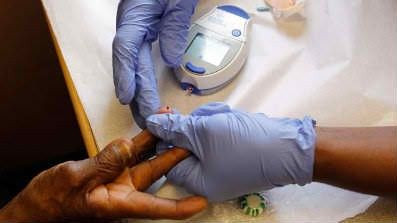Evidence suggests role for chemicals in diabetes

Evidence strongly suggests that some chemicals, especially chemicals in cigarette smoke, might cause some cases of diabetes and obesity, U.S. government researchers said on Thursday.
A committee appointed by the National Toxicology Program went through studies looking at links between diabetes and obesity and chemicals such as arsenic, chemicals found in plastic, pesticides and cigarette smoke.
Some of these associations are pretty strong, said Michael Gallo of the University of Medicine & Dentistry of New Jersey, who led a two-day workshop in North Carolina that ended on Thursday.
Especially strong was the link between smoking while pregnant and a child's later risk of becoming obese and developing type-2 diabetes. It is consistent with our understanding of how diabetes and obesity develop, Gallo told reporters in a telephone briefing.
When a pregnant woman smokes, the baby is often underweight at birth. This can set up a chain of mechanisms that lead to obesity later, which in turn can cause type-2 diabetes.
Gallo and others stressed that at least 70 percent of cases of obesity and diabetes are caused directly by eating poorly and exercising too little. But some cases of diabetes, especially in fit, lean people, are harder to explain.
The National Toxicology Program, part of the National Institutes of Environmental Health Sciences, arranged the workshop to determine how strong the evidence is.
These data really show us that there is biological plausibility to some of these or all of these chemical groups, Gallo said.
Gallo said it is impossible to say yet how many cases of diabetes might be linked to chemicals.
We don't have enough exposure data, Gallo said.
The animal experiments that have been conducted to date are not really designed to quantitate.
The U.S. Department of Veterans Affairs recognizes that dioxin, the main component of the Agent Orange used to strip forests during the Vietnam War, can cause diabetes.
Last year the VA compensated 270,000 Vietnam War veterans for diabetes linked to dioxin exposure.
© Copyright Thomson Reuters 2024. All rights reserved.





















